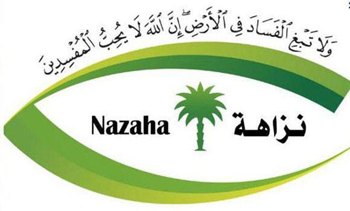Jeddah, Oct 28: A citizen has sent a complaint to the National Anti-Corruption Commission (NACC or Nazaha), calling for investigation into an alleged case of corruption involving the appointment of the son of Civil Service Minister Khaled Al-Araj to the post of project manager for a monthly salary exceeding SR21,000.
 The complaint came soon after the minister stated that the typical Saudi employee does not spend more than one hour a day to do real work, a statement most Saudis deemed offensive.
The complaint came soon after the minister stated that the typical Saudi employee does not spend more than one hour a day to do real work, a statement most Saudis deemed offensive.
Saad Al-Thuwaini wrote a complaint letter to Nazaha President Khaled Al-Muhaisin, claiming abuse of power on the part of the minister.
Al-Thuwaini asked that the matter be investigated and that the minister’s son undergo an examination to establish his credentials.
He took issue with the salary earned by the minister’s son, which is rarely obtained by regular Saudis working in whatever specialties and holding whatever qualifications.
The minister insists that his son was not shown favoritism when hired.
The NACC took the complaint seriously, acting promptly.
The anti-corruption body’s spokesman, Abdulrahman Al-Ajlan, said the commission monitors media and Internet news and takes action to ensure the implementation of the national strategy to protect integrity and fight against corruption.
He said the commission is monitoring regularly the social network postings regarding the hiring of the minister’s son.
“I would like to remind all that Custodian of the Two Holy Mosques King Salman said that the Kingdom does not tolerate corruption of any sort and that no one is above the law,” said Al-Ajlan.
That matter was not discussed by the Nazaha alone, but also by Saudi Commission for Tourism and National Heritage (SCTNH) President Prince Sultan bin Salman, who said it is not right to say that citizens do not work and that Saudi Arabia lacks expertise in various fields of work.
A video circulated on social media shows Prince Sultan saying that “the country’s development and achievements over the past years are fantastic and quite difficult to believe ... we cannot say that the citizens do not work and there is no development.”
Prince Sultan said: “Who built this country? Who united it before the discovery of oil, and before economic prosperity? Those who accomplished this were the citizens who trust God Almighty, who stand side by side, who always support their state, who believe in this state, in this place and its future.”






Comments
Add new comment